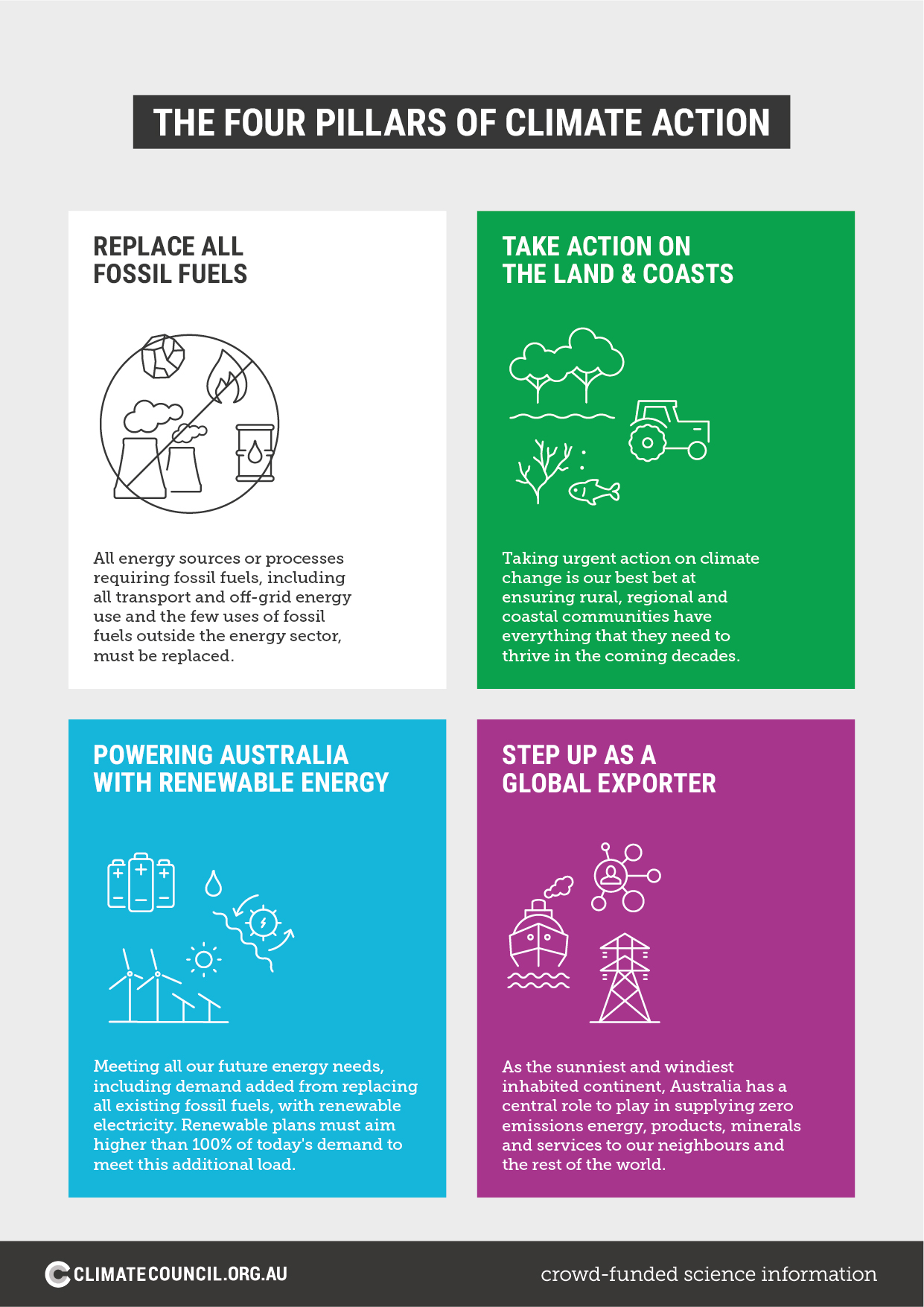
COVID-19 has fundamentally reshaped the world we know, taking a horrendous toll on human health and the economy. While the response has not been perfect, Australia has so far managed this crisis far better than many comparable countries. Federal, state and territory governments have been relying on expert, evidence-based advice to lead their response to the crisis. This crisis is far from over. But another, more long-term crisis remains an urgent threat to humanity: climate change.
This short report, ‘Primed for Action: A Resilient Recovery for Australia’ outlines the Climate Council’s response to the COVID-19 crisis. As Australia reboots its economy on the other side of this crisis there is remarkable potential for that economic recovery to occur through climate action. A gas-led economic recovery is poorly suited to the task at hand. A reorientation toward net zero emissions is a fundamental requirement of Australia’s COVID-19 recovery to deal with the two crises of economic recovery and climate change.
Key Findings:
1. Politicians have listened to expert scientific advice on COVID-19 and acted. It is urgent they do the same with climate change.
- COVID-19 has shown that effective action is possible when politicians listen to scientific experts and act swiftly on their advice.
- A co-ordinated response to COVID-19, with co-operation across all levels of government, has so far slowed the spread of the coronavirus. This kind of bipartisanship is needed in tackling climate change.
- Governments must use economic stimulus measures to bring about rapid and permanent emissions reductions. If we miss this opportunity, we are bequeathing a dangerous world to our children and grandchildren.
2. A resilient recovery from the coronavirus must prepare Australia for the next major threat – climate change. The potential for job creation in the renewables sector is substantial and can set our country up for the 21st Century.
A goal of net zero emissions must include:- Replacing all fossil fuels with other energy sources or processes.
- Meeting our energy needs with renewable electricity.
- Stepping up as a global exporter of zero emissions energy, technology and expertise to help the rest of the world reduce their emissions with Australian power, products and services.
- Taking action on the land and coasts to build future resilience to climate threats.

3. Gas has no role to play in building a prosperous, resilient economy for the future. It is volatile, dangerous and unnecessary.
- Gas is price volatile, driving energy prices for Australians. Investing further in gas risks locking in huge investment losses, stranded assets and environmental harm.
- Emissions from the extraction, processing and export of gas have been the main driver behind Australia’s emissions staying so high. These emissions are likely underestimated.
- Gas projects cannot provide sustainable long-term employment opportunities because of this volatility.
4. Australians are already living with dangerous climate change having experienced recordbreaking drought, the Black Summer bushfires and the third mass bleaching event of the Great Barrier Reef in the past five years.
- Australia is the world’s 14th highest annual emitter of greenhouse gases. This means that 181 countries do less to drive global climate change each year than Australia.
- Australia is one of the sunniest and windiest countries in the world and has a substantial competitive advantage.
- The recovery from the COVID-19 crisis presents a once-in-a-lifetime opportunity to prime Australia to be a renewables-led powerhouse and to address climate change.

No comments:
Post a Comment